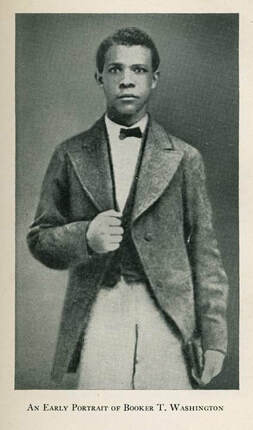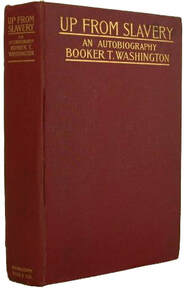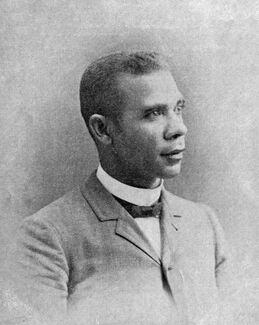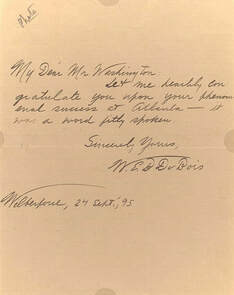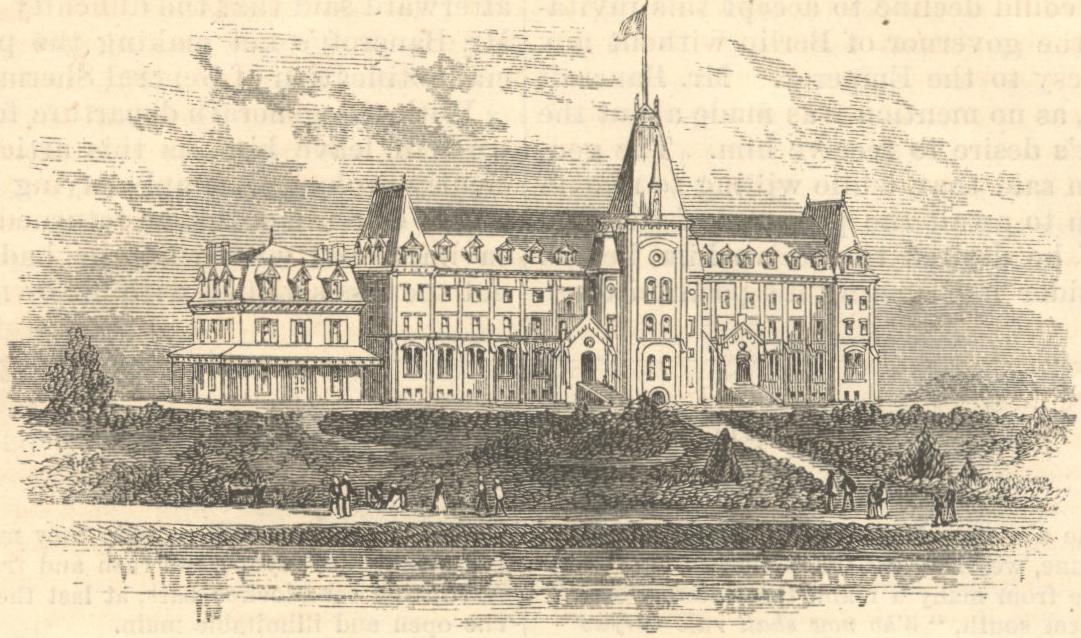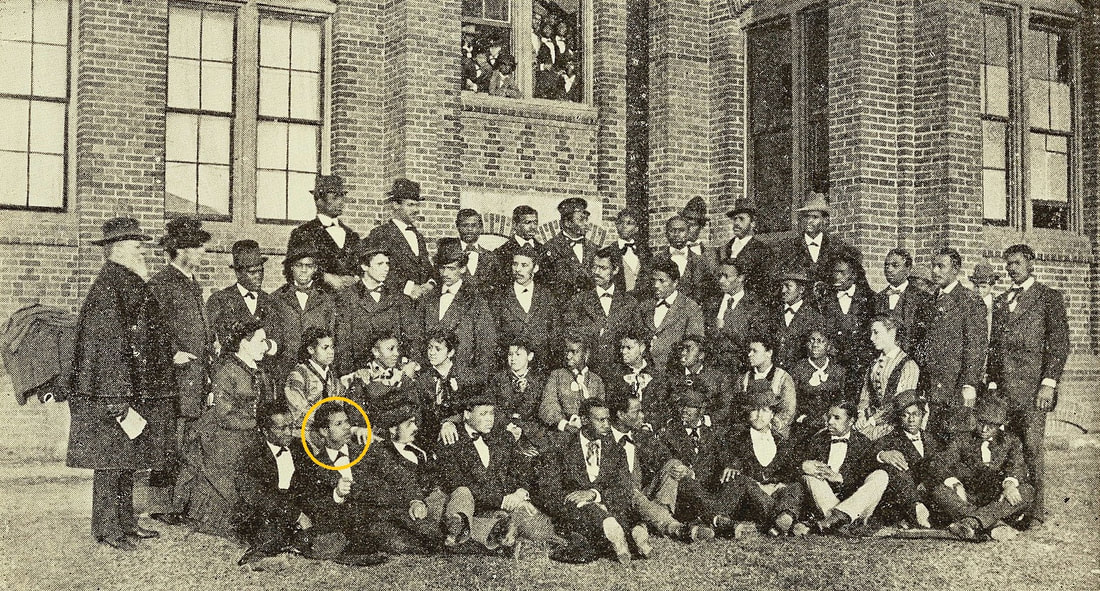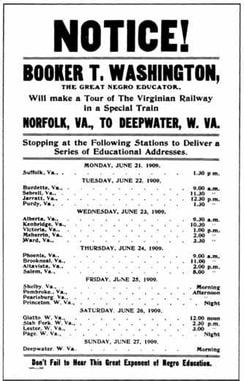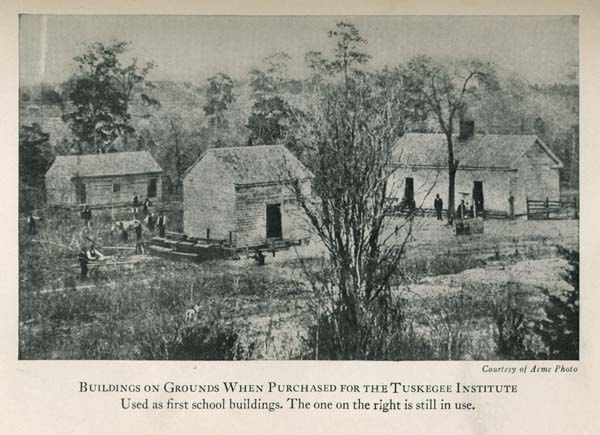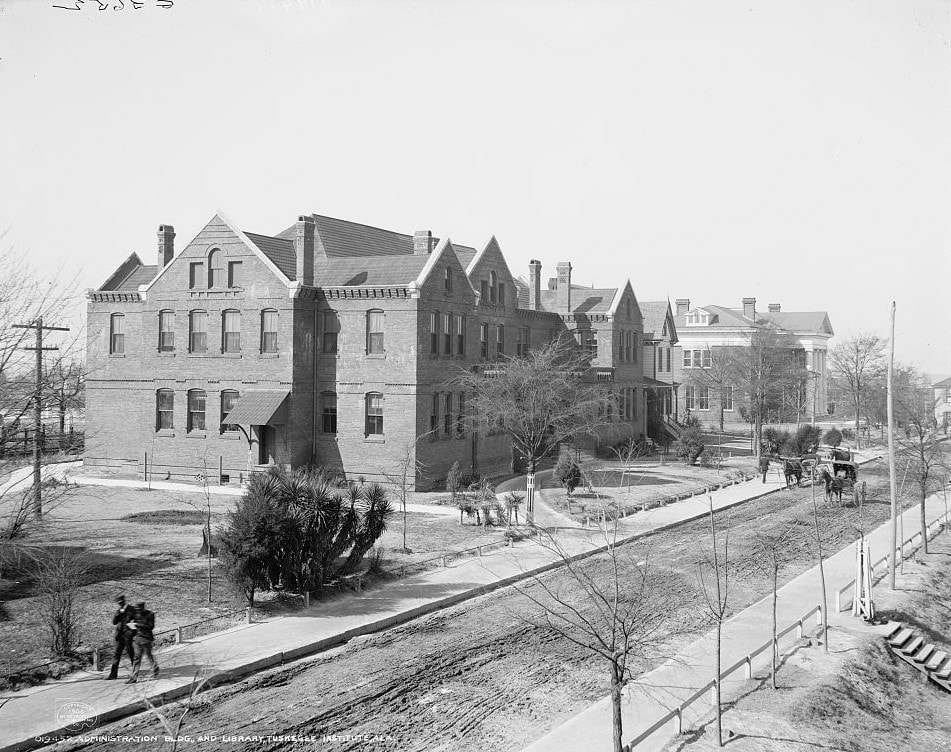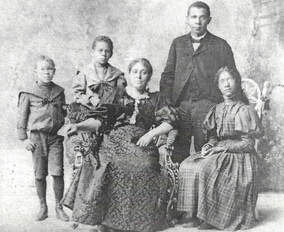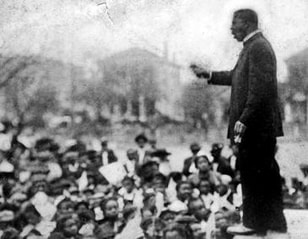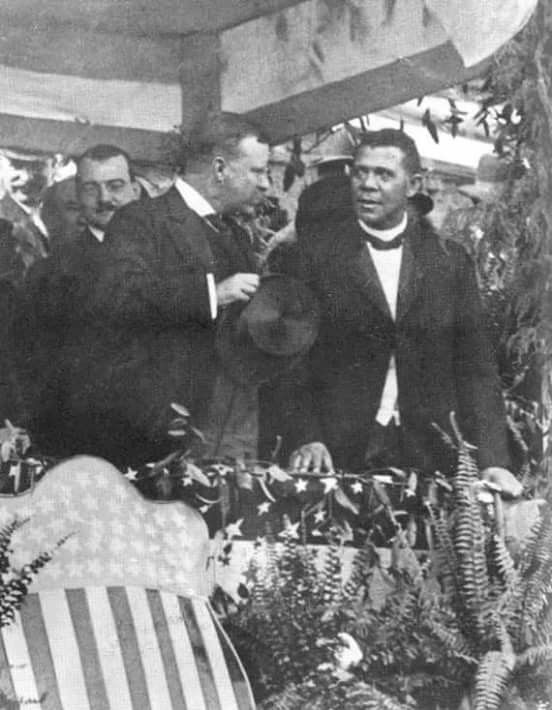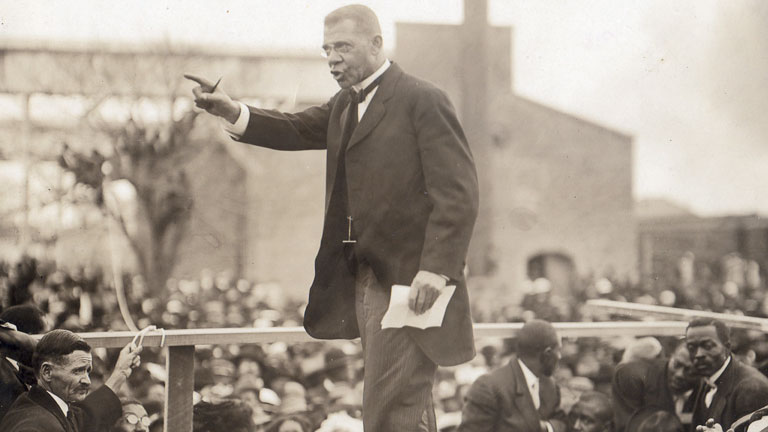|
"The happiest individuals are those who do the most to make others useful and happy."
- Washington, Up From Slavery [14] |
Booker T. Washington
The Educator
|
Top photo: Booker T. Washington. 1890, Library of Congress.
|
Booker T. Washington was born into slavery in Virginia in 1856. After the Civil War, his stepfather forced him to work in a salt furnace, a coal mine, and a white household, and he struggled to get any education.
"One day, while at work in the coal mine, I happened to overhear two miners talking about a great school for coloured people somewhere in Virginia. This was the first time I had ever heard anything about any kind of school or college that was more pretentious than the little colored school in our town." - Washington, Up From Slavery [15] Washington began saving so he could attend the Hampton Institute. "The small amount of money that I had earned had been consumed by my stepfather...with the exception of a very few dollars...The distance from Malden to Hampton is about five hundred miles...it began to grow painfully evident that I did not have enough money to pay my fare." - Washington, Up From Slavery [16] Washington walked most of the 500-mile trip. Arriving with 50 cents in his pocket, he worked as a janitor to scrape by while in school. "Life at Hampton was a constant revelation to me; was constantly taking me into a new world. The matter of having meals at regular hours, of eating on a tablecloth, using a napkin, the use of the bath-tub and of the tooth-brush, as well as the use of sheets upon the bed, were all new to me.” - Washington, Up From Slavery [17]
Washington firmly believed that industrial training was a priority for African-Americans.
"At the institution I attended [in Washington, DC], there was no industrial training given to students, and I had an opportunity of comparing the influence of [that institution]...with that of...Hampton Institute, which emphasizes the industries...At Hampton, the student was constantly making the effort through the industries to help himself, and that very effort was of immense value in character-building. The students at the other school seemed to be less self-dependent...they did not appear to me to be beginning...on a real solid foundation...There seemed to be a dependence upon Government for every conceivable thing.” - Washington, Up From Slavery [18]
The Tuskegee InstituteIn 1881, Washington was offered the opportunity to “begin my life-work” and take charge of a “normal* school for the coloured people in the little town of Tuskegee, AL.” - Washington, Up From Slavery [58]
(*A "normal" school is one that focuses on industrial education.) "I set July 4, 1881, as the day for the opening of the school in the little shanty and church which had been secured for its accommodation. There were not a few white people in the vicinity of Tuskegee who looked with some disfavour upon the project. They questioned its value...Some had the feeling that in proportion as the Negro received education, in the same proportion would his value decrease...These people feared the result of education would be that the Negroes would leave the farms and that it would be difficult to secure them for domestic service." - Washington, Up From Slavery [19]
[Mouse over or click to read the captions below]
|
|
|
Using a loan from Hampton's treasurer, Washington bought an abandoned plantation and with his students, rebuilt it as a premier institution for African-American education. The school focused on agricultural, domestic, and industrial training, but also included academics.
Washington became a renowned public speaker and national leader, well-known to both Blacks and Whites. |
By 1911, Julius Rosenwald had begun
working on behalf of African-Americans, and was
seeking more ways to help.
working on behalf of African-Americans, and was
seeking more ways to help.
